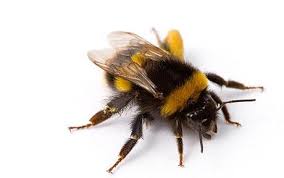bee
英 [biː]
美 [biː]
- n. 蜜蜂,蜂;勤劳的人
- n. (Bee)人名;(赤几)贝埃;(东南亚国家华语)美;(英)比(女子教名Beatrix和Beatrice的昵称)
使用频率:

记忆方法
将“bee”与“bee”(蜜蜂)的生活习性联系起来记忆。想象蜜蜂忙碌地“be”(是)在花丛中采蜜的场景,这样就能帮助记忆单词“bee”的含义。
以上内容由AI生成, 仅供参考和借鉴
中文词源
bee 蜜蜂
可能来自拟声词,模仿蜜蜂嗡嗡叫的声音。
英语词源
- bee
-
bee: [OE] Old English bēo ‘bee’ came from a prehistoric West and North Germanic *bīōn, source also of German biene, Dutch bij, and Swedish bi, which may all be traceable back to an Indo-European base *bhi- ‘quiver’. This, if it is true, means that the bee was originally named as the ‘quivering’, or perhaps ‘humming’ insect. Latin fucus ‘drone’ appears to be related.
- bee (n.)
- stinging insect, Old English beo "bee," from Proto-Germanic *bion (cognates: Old Norse by, Old High German bia, Middle Dutch bie), possibly from PIE root *bhi- "quiver." Used metaphorically for "busy worker" since 1530s.
Sense of "meeting of neighbors to unite their labor for the benefit of one of their number," 1769, American English, probably is from comparison to the social activity of the insect; this was extended to other senses (such as spelling bee, first attested 1809; Raising-bee (1814) for building construction; also hanging bee "a lynching"). To have a bee in (one's) bonnet (1825), said of one who is harebrained or has an intense new notion or fancy, is said in Jamieson to be Scottish, perhaps from earlier expressions such as head full of bees (1510s), denoting mad mental activity.
权威例句
- 1. He's got a bee in his bonnet about factory farming.
- 他满脑子都是工厂化养殖的事儿。
- 2. Remove the bee sting with tweezers.
- 用镊子拔掉蜜蜂的螫刺。
- 3. The flower opens to reveal a Queen Bee.
- 花瓣展开,一只蜂王露了出来。
- 4. Her arm was beginning to swell up where the bee had stung her.
- 她胳膊给蜜蜂蜇了,肿了起来。
- 5. She is as busy as a bee in the morning.
- 早上她总是忙得团团转.
